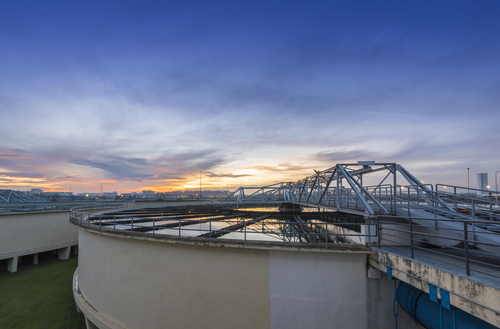Effluent treatment plant for metal industries
 This guidance is relevant if you produce liquid effluent from your metal finishing operations and you treat your effluent on site.
This guidance is relevant if you produce liquid effluent from your metal finishing operations and you treat your effluent on site.
You should treat effluent before you discharge it because untreated effluent is likely to contain metals that could damage bacterial treatment beds at sewage treatment works, contaminate sewage sludge and cause water pollution. If you pollute water, you are very likely to be committing an offence. You could be fined or ordered to stop your operations.
SEPA has produced a Metals sector Plan. This contains useful information on regulations and on good practices for the sector.
What you must do
Check if you need a permit, licence or exemption
If you operate an effluent treatment plant at your site you may need a pollution prevention and control (PPC) permit, waste management licence or registered exemption.
Does your business need a permit, licence or exemption?
If you have a permit, licence or registered exemption you must comply with its conditions. If you do not comply with conditions you can be fined or even sent to prison.
You must speak to your regulator before you discharge treated or untreated effluent to a public sewer, surface water or ground waters. You may need consent or another authorisation. For more information, see our guidance on discharges to water and sewer.
Comply with your waste responsibilities
Most chemical effluent treatment plants treat the effluent by controlling pH levels and allowing metals to precipitate out (drop out as solids).
You must comply with your waste responsibilities when you dispose of waste from your treatment plant, including any sludge your plant produces.
You must be careful when you handle metal hydroxide precipitate. You must keep its pH close to neutral and must not expose it to acidic conditions or you will re-mobilise the metals.
You will need to treat some filter cake from electroplating operations as hazardous/special waste.
Good practice
Reduce the load on your effluent treatment plant by minimising the waste you produce and monitoring the volume of water your business uses.
Carefully control the pH of your effluent to prevent metals, particularly aluminium and zinc, going back into solution.
Cover your settling tanks to avoid clumps of solids settling due to high temperatures.
Monitor the efficiency of your filter press. If you reduce the water content of your sludge this might reduce your waste management charges.
If your precipitation methods do not achieve the effluent quality you need to meet your discharge consent limits you could use other methods - for example, evaporation, ion-exchange, reverse osmosis and electrolysis.
SEE ALSO: Metal finishing, Preventing water pollution
